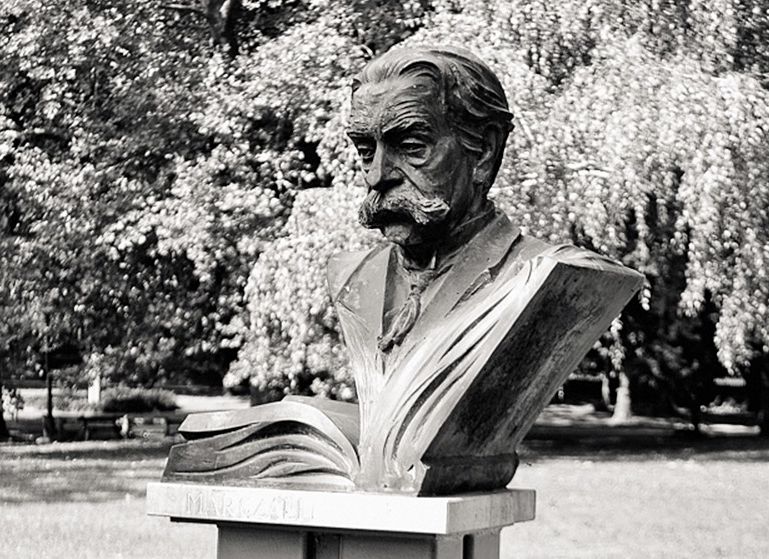The Notion of Estate in Marczali’s and Hajnal’s Thinking, and the Afterlife of the Concept
DOI:
https://doi.org/10.15170/PAAA.2024.11.02.13.Keywords:
estate, reasonnes, backwardness, feudalization, hierarchic social organization, Henrik MarczaliAbstract
Henrik Marczali in a study of him published at the outset of the 20th century discussed the changing role of the estate in the course of the overall Hungarian history. In terms of the modern era, he stated that its invariable continuity shapes negatively the process of capitalist development; and this manifests itself in the form that the nobility is gradually becoming a bureaucratic class. István Hajnal several decades later also conceptualized the great role that the estate structural characteristics played in history from Antiquity through the Industrial Revolution. He, however, ascribed a positive role to the mature form of estate even in the developing potential of European modernity. Historians in the aftermath quite frequently discussed the problem of the surviving estate elements, when they found that it is that presumably accounts for the relative backwardness of modernity both in Hungary and Eastern Europe in general. They did it without knowing anything about Marczali’s proposition and often misunderstood Hajnal’s conceptualization. More recently even the Socialist (Communist) sociopolitical system has also been considered as consisting of many estate characteristics. It has not been clarified, however, that this might be outcome of the surviving historical estate patterns or follows only from the fact, that every social system gives some room for the existence of estate patterns as Max Weber held in his influential theorization.
Downloads
References
Gyáni Gábor: Huszadik századi magyar társadalmak. In: A mi 20. századunk. Szerk. Kovács Kiss Gyöngy – Romsics Ignác. Kolozsvár, 2011. 51–99.
Gyáni Gábor: Hajnal István történetírása – új megvilágításban. Korall 25. (2024):95. 134–156.
Gyáni Gábor – Kövér György: Magyarország társadalomtörténete a reformkortól a második világháborúig. Budapest, 1998.
Hajnal István: Az osztálytársadalom. In: Magyar Művelődéstörténet. Ötödik kötet. Az új Magyarország. Szerk. Domanovszky Sándor. Budapest, é. n. 163–200.
Hanák Péter: A magyar „középosztály” fejlődésének problémájához. Valóság 5. (1962):3. 23–39.
Hanák Péter: Magyarország társadalma a századforduló idején. In: Magyarország története 1890–1918. Főszerk. Hanák Péter. Budapest, 1988. 426–515.
Horváth Gergely Krisztián: A rendiség tovább élő öröksége a szocializmus évtizedeiben. Hitel 34. (2021):2. 72–87.
Horváth Gergely Krisztián: A magyar típusú jelenkortörténet – a vidéktörténet szemszögéből. Történelmi Szemle 64. (2022):4. 805–824.
Karády Viktor – Kemény István: Zsidóság a magyar nemzetépítésben a numerus clausus előtt és után. Budapest, 2023.
Majtényi György: K-vonal. Uralmi elit és luxus a szocializmusban. Budapest, 2009.
Marczali Henrik: Társadalmunk történeti fejlődése gazdasági alapon. Harmadik és utolsó közlemény. Budapesti Szemle (1914): 450. 343–354.
Márkus István: Kifelé a feudalizmusból. Budapest, 1971.
Márkus István: A hierarchizált ember és a többé-kevésbé autonóm ember. Valóság 32. (1989):5. 25–44.
Márkus István: Utórendiségünk. Gyökerek és gyümölcsök. Valóság 34. (1991):5.1–23.
Pálosfalvi Tamás: Monarchia vagy rendi állam? Gondolatok a késő középkori magyar állam jellegéről. Századok 154. (2020):1. 135–182.
Szabó Márton: A hierarchikus tudatról. Valóság27. (1984):2. 28–37.
Szabó Márton: A rendi „szocializmusról”. In: Előadások a polgárosodásról I. Rendiség és polgárosodás. Szerk. Tóth András. Budapest, 1991. 27–36.
Szabó Márton: A dolgozó mint állampolgár. Fogalomtörténeti tanulmány a magyar szocializmus három korszakáról. Korall 8. (2007):27. 151–171.
Tóth Zoltán: A rendi társadalomszervezet történeti színeváltozásairól. In: Előadások a polgárosodásról I. Rendiség és polgárosodás. Szerk. Tóth András. Budapest, 1991. 13–25.
Tóth Zoltán: Távlati kép a történelmi parasztságról. In: Magyar Néprajz nyolc kötetben. 8. Társadalom. Főszerk. Paládi-Kovács Attila. Budapest, 2000. 67–116.
Tóth Zoltán: Társadalomfogalmak az osztrák és magyar társadalomstatisztikában. Budapest, 2015.
Vitányi Iván: A feudalizmus továbbélése a mai Magyarországon. Budapest, 2012.

Downloads
Published
How to Cite
Issue
Section
Categories
License
Copyright (c) 2025 Gábor Gyáni

This work is licensed under a Creative Commons Attribution-NonCommercial-NoDerivatives 4.0 International License.










